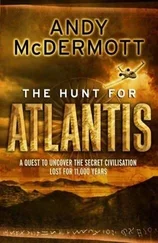She was a pretty, delicate woman, sophisticated by Russian standards, who polished her husband's passable English with American and British books - politically approved ones to be sure, mainly the thoughts of Western leftists, but also a smattering of genuine literature, including Hemingway, Twain, and Upton Sinclair. Along with his naval career, Natalia had been the center of his life. Their marriage, punctuated by prolonged absences and joyous returns, made their love even more precious than it might have been. When construction began on the first class of Soviet nuclear-powered submarines, Marko found himself in the yards learning how the steel sharks were designed and built. He was soon known as a very hard man to please as a junior quality control inspector. His own life, he was aware, would ride on the workmanship of these often drunk welders and fitters. He became an expert in nuclear engineering, spent two years as a starpom, and then received his first nuclear command. She was a November-class attack submarine, the first crude attempt by the Soviets to make a battleworthy long-range attack boat to threaten Western navies and lines of communication. Not a month later a sister ship suffered a major reactor casualty off the Norwegian coast, and Marko was first to arrive on the scene. As ordered, he successfully rescued the crew, then sank the disabled sub lest Western navies learn her secrets. Both tasks he performed expertly and well, a noteworthy tour de force for a young commander. Good performance was something he had always felt it was important to reward in his subordinates, and the fleet commander at that time felt the same way. Marko soon moved on to a new Charlie I-class sub. It was men like Ramius who went out to challenge the Americans and the British. Marko took few illusions with him. The Americans, he knew, had long experience in naval warfare - their own greatest fighter, Jones, had once served the Russian navy for the Czaritza Catherine. Their submariners were legendary for their craftiness, and Ramius found himself pitted against the last of the war-trained Americans, men who had endured the sweaty fear of underwater combat and utterly defeated a modern navy. The deadly serious game of hide-and-seek he played with them was not an easy one, the less so because they had submarines years ahead of Soviet design. But it was not a time without a few victories. Ramius gradually learned to play the game by American rules, training his officers and men with care. His crews were rarely as prepared as he wished - still the Soviet Navy's greatest problem - but where other commanders cursed their men for their failings, Marko corrected the failings of his men. His first Charlie-class submarine was called the Vilnius Academy. This was partially a slur against his half-Lithuanian blood - though since he had been born in Leningrad of a Great Russian, his internal passport designated him as that - but mainly recognition that officers came to him half-trained and left him ready for advancement and eventual command. The same was true of his conscripted crewmen. Ramius did not permit the hazing and low-level terrorism normal throughout the Soviet military. He saw his task as the building of seamen, and he produced a greater percentage of reenlistments than any other submarine commander. A full ninth of the michmanyy in the Northern Fleet submarine force were Ramius-trained professionals. His brother submarine commanders were delighted to take aboard his starshini, and more than one advanced to officer's school. After eighteen months of hard work and diligent training, Marko and his Vilnius Academy were ready to play their game of fox and hounds. He happened upon the USS Triton in the Norwegian Sea and hounded her mercilessly for twelve hours. Later he would note with no small satisfaction that the Triton was soon thereafter retired, because, it was said, the oversized vessel had proven unable to deal with the newer Soviet designs. The diesel-powered submarines of the British and the Norwegians that he occasionally happened across while snorkling he dogged ruthlessly, often subjecting them to vicious sonar lashing. Once he even acquired an American missile submarine, managing to maintain contact with her for nearly two hours before she vanished like a ghost into the black waters. The rapid growth of the Soviet Navy and the need for qualified officers during his early career prevented Ramius from attending the Frunze Academy. This was normally a sine qua non of career advancement in all of the Soviet armed services. Frunze, in Moscow near the old Novodevichiy Monastery, was named for a hero of the Revolution. It was the premiere school for those who aspired to high command, and though Ramius had not attended it as a student, his prowess as an operational commander won him an appointment as an instructor. It was something earned solely on merit, for which his highly placed father was not responsible. That was important to Ramius. The head of the naval section at Frunze liked to introduce Marko as "our test pilot of submarines." His classes became a prime attraction not only for the naval officers in the academy but also for the many others who came to hear his lectures on naval history and maritime strategy. On weekends spent at his father's official dacha in the village of Zhukova-1, he wrote manuals for submarine operations and the training of crews, and specifications for the ideal attack submarine. Some of his ideas had been controversial enough to upset his erstwhile sponsor, Gorshkov, by this time commander in chief of the entire Soviet Navy - but the old admiral was not entirely displeased. Ramius proposed that officers in the submarine service should work in a single class of ship - better yet, the same ship - for years, the better to learn their profession and the capabilities of their vessels. Skilled captains, he suggested, should not be forced to leave their commands for desk-bound promotions. Here he lauded the Red Army's practice of leaving a field commander in his post so long as the man wanted it, and deliberately contrasted his view on this matter with the practice of imperialist navies. He stressed the need for extended training in the fleet, for longer-service enlisted men, and for better living conditions on submarines. For some of his ideas he found a sympathetic ear in the high command. For others he did not, and thus Ramius found himself destined never to have his own admiral's flag. By this time he did not care. He loved his submarines too much ever to leave them for a squadron or even a fleet command. After finishing at Frunze, he did indeed become a test pilot of submarines. Marko Ramius, now a captain first rank, would take out the first ship of every submarine class to "write the book" on its strengths and weaknesses, to develop operational routines and training guidelines. The first of the Alfas was his, the first of the Deltas and Typhoons. Aside from one extraordinary mishap on an Alfa, his career had been one uninterrupted story of achievement. Along the way he became the mentor of many young officers. He often wondered what Sasha would have thought as he taught the demanding art of submarine operations to scores of eager young men. Many of them had already become commanding officers themselves; more had failed. Ramius was a commander who took good care of those who pleased him - and took good care of those who did not. Another reason why he had never made admiral was his unwillingness to promote officers whose fathers were as powerful as his own but whose abilities were unsatisfactory. He never played favorites where duty was concerned, and the sons of a half-dozen high Party officials received unsatisfactory fitness reports despite their active performance in weekly Party discussions. Most had become zampoliti. It was this sort of integrity that earned him trust in fleet command. When a really tough job was at hand, Ramius' name was usually the first to be considered for it.
Читать дальше











